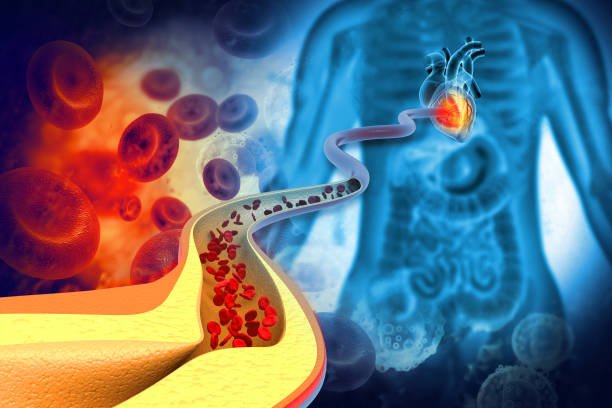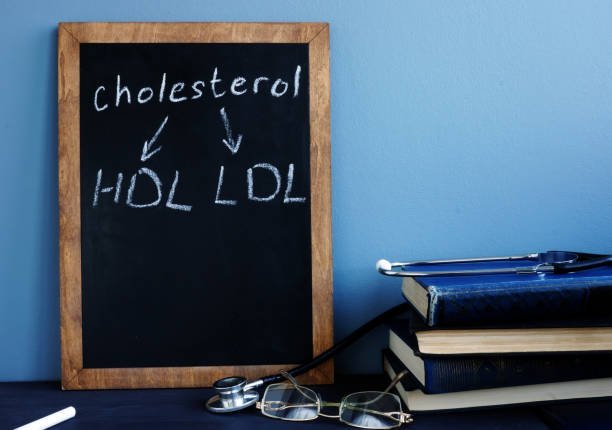
High-density Cholesterol TooLow? Explain the Causes, Dangers And Standards of Low Cholesterol
When many people hear the word “cholesterol”, they may have a stereotype and think that “cholesterol” is bad for the human body. In fact, this is all due to high cholesterol, which increases the risk of cardiovascular disease. However, what you may not know is that cholesterol is also one of the essential raw materials for the body to produce hormones and form cell membranes. Most people are worried about having too high cholesterol. However, some people may have “too low” cholesterol. What problems will this cause to the human body? Let’s take a look, how to define low cholesterol? What are the symptoms?
What is low cholesterol?
First of all, we need to define what kind of cholesterol is too low by “low cholesterol”? Therefore, let’s take the most commonly seen values in general blood lipid testing as an example. Cholesterol can be mainly divided into total cholesterol (TC), low-density lipoprotein cholesterol (LDL-C) and high-density lipoprotein cholesterol (HDL-C).
Total cholesterol represents the sum of all cholesterol, including low-density, very low-density, medium-density and high-density cholesterol. Low-density lipoprotein is responsible for carrying cholesterol produced by the liver and sent to cells in need through the blood. High-density lipoprotein will interact with Cholesterol in the blood is combined and sent back to the liver for metabolism.
The medical community is still studying the effects of low total cholesterol and low-density lipoprotein on the human body; however, low high-density lipoprotein means more cholesterol is deposited in blood vessels, which will inevitably increase the risk of cardiovascular disease.

Causes of low cholesterol
Cholesterol and saturated fat are commonly found in meat and eggs. Vegetarians, people who do not like to eat meat, and people who do not consume enough calories may have low cholesterol. However, the reason is not that the food has too little cholesterol, but that it is one of the raw materials for making cholesterol. 1 – Too little saturated fat. Scientific research has proven that the cholesterol concentration in the human body is mainly produced by the liver, and the cholesterol absorbed from food only accounts for a small part.
In addition, some genetic diseases, such as Smith-Lemli-Opitz syndrome (SLOS), hyperthyroidism, or cancer, may also lower cholesterol levels in the body.
Are there any dangers of having low cholesterol?
Some scholars have suggested that low cholesterol may affect normal cell function and may have a negative impact on the brain, an organ that accounts for 25% of cholesterol content. We already know that cholesterol is an important component of the synthesis of cell membranes, which sounds reasonable; some studies have also found that low cholesterol concentrations may be related to cancer, hemorrhagic stroke, and depression. However, there is still a lack of generally accepted research results proving the impact of low cholesterol on the human body.
It is worth mentioning that patients with the rare disease SLOS (Smith-Lemli-Opitz syndrome) have problems with cholesterol synthesis in the body due to genetic defects. Most patients will have low cholesterol. Possible symptoms include microcephaly, cleft palate, and heart defects. and brain development abnormalities, etc., patients need to take cholesterol supplements to improve their symptoms; however, this does not mean that ordinary people will have similar symptoms if their cholesterol is too low.
What effects does low total cholesterol have on the human body? The medical community has not yet reached a conclusion, so low cholesterol is usually not treated. Currently, mainstream medicine still focuses on lowering total cholesterol and low-density lipoprotein as the focus of preventing cardiovascular disease.
Cholesterol levels that are too low
In fact, not only is there no conclusion on the harm of low cholesterol to the human body, there is currently no clear consensus among the medical community on the standards for low cholesterol.
If we look at the standard values for general cholesterol and triglyceride testing, it only stipulates that total cholesterol should be less than 200 mg/dL and LDL-C should be less than 130 mg/dL, but there is no indication of how much higher it should be.
According to data from Mayo Clinic, a well-known clinic in the United States, low-density lipoprotein (bad cholesterol) <40 mg/dL is usually considered to be a very low cholesterol condition.

How to face the results of cholesterol test?
What impact does low cholesterol have on the average person? The medical community has not yet reached a conclusion. People’s attitudes towards cholesterol and the advice given by doctors will also change due to the progress of research, and may even be contrary to past advice.
In any case, current medical treatment guidelines focus on conditions such as high total cholesterol, high low-density lipoprotein, and low high-density lipoprotein, leaving further research in the future to explain the pros and cons of low cholesterol.
If your cholesterol is not within standard values (may be marked with red letters), please consult your doctor to discuss ways to improve it












